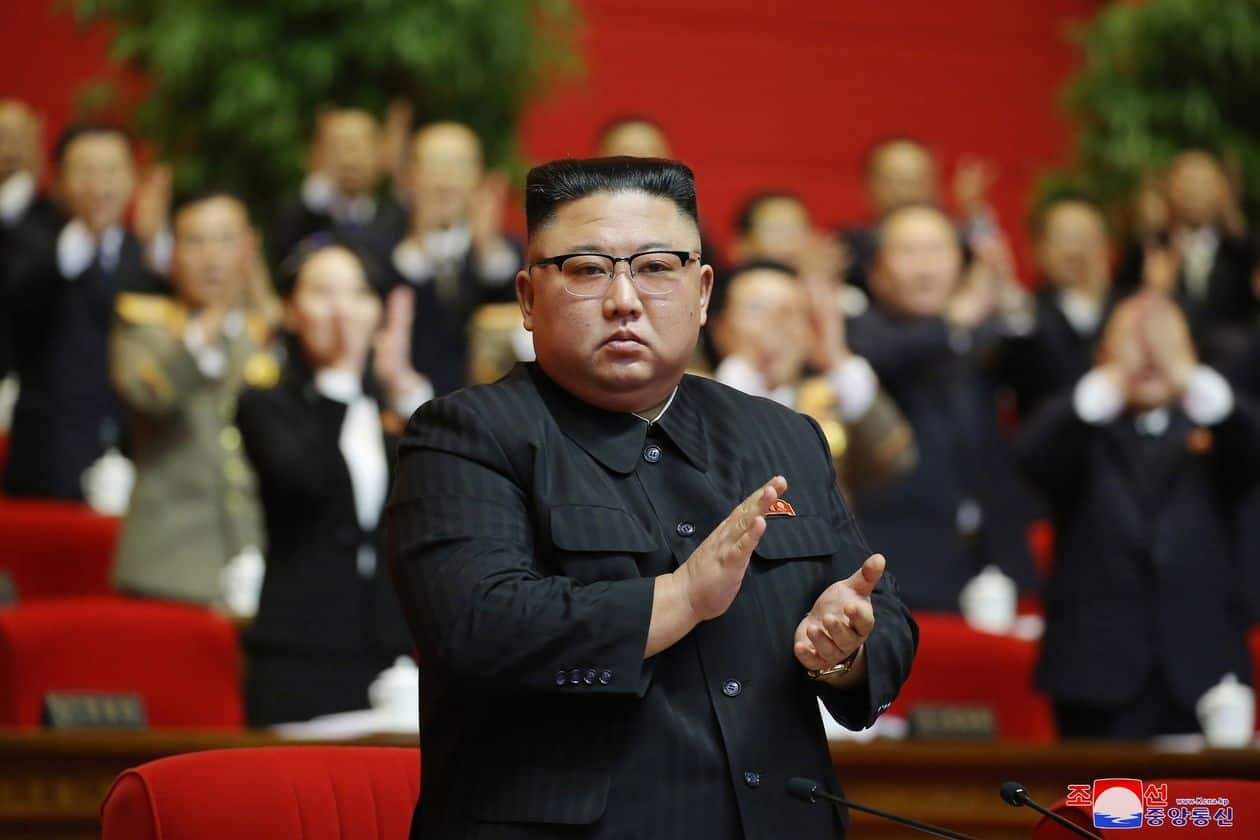Kim Jong Un Gets a Promotion, Gives His Sister a Demotion

On the sixth day of a rare Workers’ Party Congress meeting, Mr. Kim was elevated from chairman to general secretary, a rank previously held by his late father and grandfather. North Korean state media described the role as “the brain of the revolution.” But as a practical matter, Mr. Kim’s control over the cloistered regime remains as absolute as ever.
Meanwhile, Kim Yo Jong, the leader’s younger sister and a confidante, wasn’t named to the Politburo, the party’s top decision-making body, in an apparent demotion from her prior standing as an alternative member. Some Pyongyang experts had expected Ms. Kim could be promoted to a full-time seat.
Ms. Kim’s removal from the Politburo reinforces that North Korea is run by a single person, rather than any codified system or set of rules, said Park Won-gon, an international studies professor at South Korea’s Handong Global University. The decision also brings potential benefits to Mr. Kim, he adds.
“Kim Jong Un might think that it is better not to give an official position for his sister because if he did, she could grab her own power network,” Mr. Park said.
But in a sign she still holds internal sway, Ms. Kim has sat just a few feet behind her brother at the ongoing congress meeting—only the third such event in more than four decades—which suggests she is likely to remain active in her recent role as the regime’s mouthpiece for U.S. and South Korean relations, close Pyongyang watchers say.
Ms. Kim, deputy director of the North’s propaganda and agitation department, has gained a more prominent role in Pyongyang’s affairs. At an August briefing with lawmakers, South Korea’s spy agency said Ms. Kim, while not a successor, was considered a de facto No. 2 leader and had been given expanded responsibilities. Her most-recent statement came last month, when she blasted South Korea’s foreign minister, who had cast doubts on the regime’s claim of zero Covid-19 cases.
Ms. Kim had missed several straight Politburo meetings last year, leading to some speculation that her rise might not be so assured. She did attend a Politburo meeting in late December.
The apparent demotion shows Ms. Kim’s stature is already well-established in Pyongyang, said Kim Chun-sig, a visiting professor of North Korea studies at Ewha University in Seoul.
“What official position or rank Kim Yo Jong has doesn’t matter any more. She earlier had an official position to help establish her name within North Korea. The time for that has now passed,” said Prof. Kim, a former senior Seoul government official. “Her clout will remain unchanged.”
North Korea, stung by sanctions and economically weakened by the pandemic, has unrolled a series of proclamations during the Workers’ Party festivities, a gathering of thousands of top officials. Detailed policy prescription has been light. But Mr. Kim has outlined its next generation of nuclear weapons, vowed to raise the country’s living standards and doubted the U.S. would treat the cash-strapped regime any differently under President-elect Joe Biden.
In a Monday New Year’s address, South Korean President Moon Jae-in, who has sought to warm ties with the Kim regime, promised to make a final effort to revive stalled nuclear talks between Washington and Pyongyang, as well as inter-Korean dialogue.
“Our will to meet any time, anywhere has not changed,” Mr. Moon said.
Mr. Moon’s remarks came despite Mr. Kim, last week at the congress meeting, calling Seoul’s outreach for economic and pandemic assistance inessential.
Seoul’s Defense Ministry said Monday North Korea had carried out an overnight military parade—or perhaps a rehearsal—associated with the congress. South Korean officials didn’t say what weapons were on display during the event. In October, Pyongyang had revealed a new intercontinental missile that weapons experts believe is the biggest of its kind.
As North Korea seeks a way out of its economic downturn, the country said at the congress meeting it planned to build 75,000 more homes in the capital city of Pyongyang and in a mining town in its northeastern region that was hard hit by summer typhoons last year. The country also said it would revamp a tourist resort at Mount Kumgang, modernize Pyongyang’s subways and secure 8 million tons of cement.
Choi Eun-ju, an economist with a focus on North Korea, said the country is likely to use its military to boost production of daily necessities.
“It means military factories will be producing more goods like toothpaste or machines that can have civilian uses,” said Ms. Choi, a research fellow at the Sejong Institute, a think tank near Seoul.
Photo: North Korean leader Kim Jong Un at the Workers’ Party Congress meeting in Pyongyang. - KCNA/SHUTTERSTOCK
Link: Kim Jong Un Gets a Promotion, Gives His Sister a Demotion - WSJ











